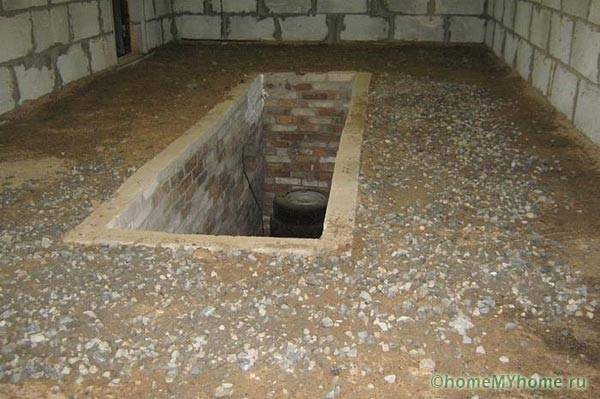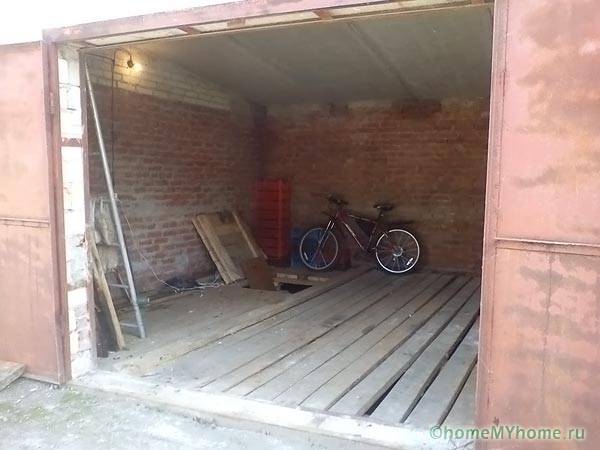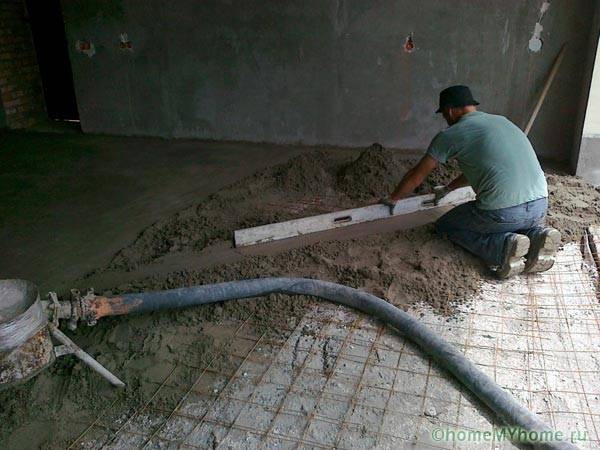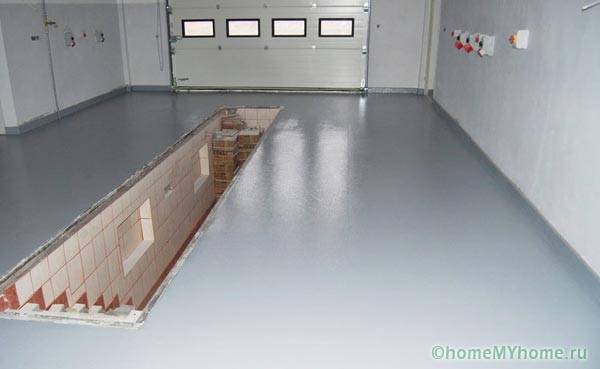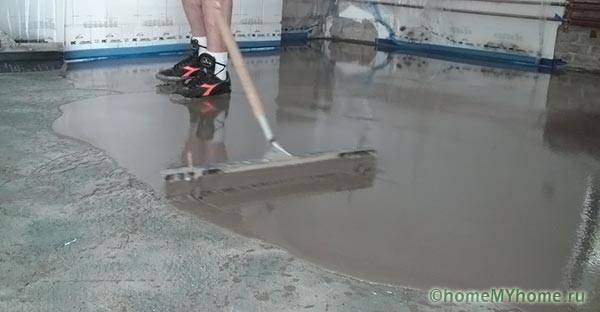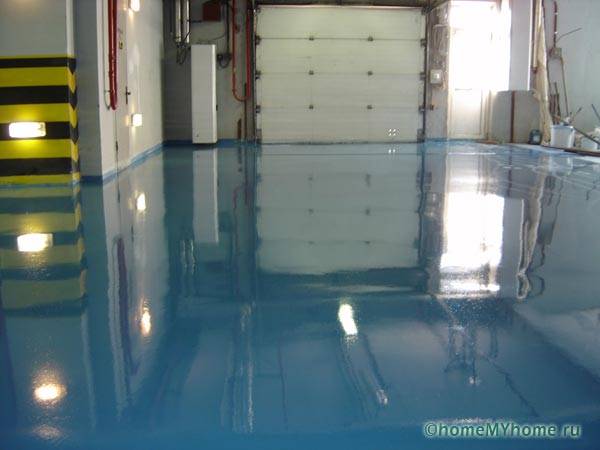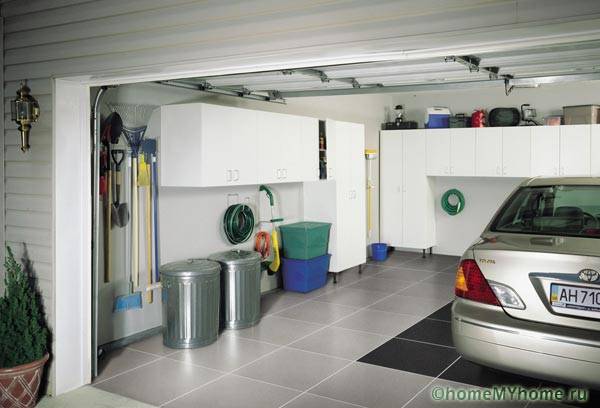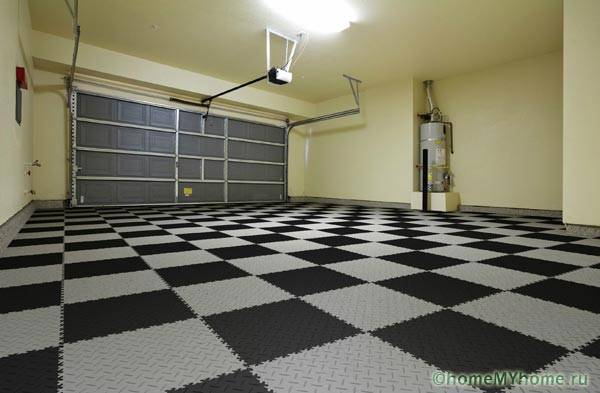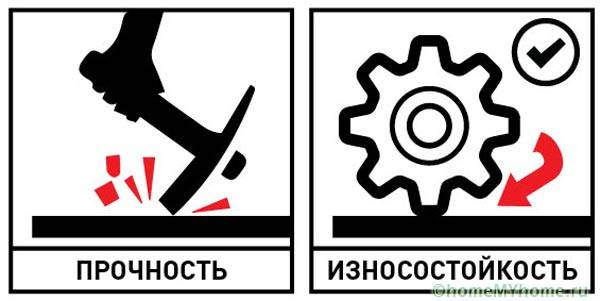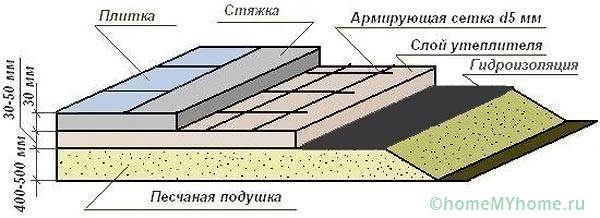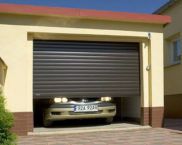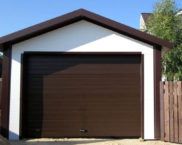Garage floor: which is better than rough concrete or modern finishes?
Happy car owners with their own garage spend a lot of time in it alone with their own iron horse. In this case, the interior decoration of the garage should be as neat, practical and convenient as finishing in your own home. The greatest stress is, of course, the floor. In a huge variety of coatings, you need to choose exactly the one that will satisfy all the requirements of the owner and will be the most durable and economical. A garage floor, which is better - modern materials or a rough surface? The answers to the question are in this material.
The content of the article
Video: do-it-yourself concrete floor in the garage
Flooring options
The floor in the garage is subject to extremely intense stress: the wheels of a car ride on it, heavy objects move, and people walk in shoes. In addition to mechanical damage, the flooring also receives chemical damage: fuel, oils, acids, paint and other aggressive compounds fall down even from the most neat motorists. Washing the car will also shorten the life of the floor if the finish is inadequate for the load.
An economical option from a bulk earthen or sandy coating can hardly be called successful for obvious reasons: with such a finish, dirt is inevitable, which will end up in the cabin or at home, especially in high humidity conditions. Asking the question of which are the best floors in the garage, one can answer that any, except for earthen, since it is generally difficult to call them floors.
Another option - hardwood floors - also has more disadvantages than advantages. In terms of cost, it is comparable to liquid bulk, and in terms of wear resistance it is much inferior to it. Due to its flammability, such a floor is one of the worst options for garages, where fuel and lubricants can easily splash out, catch fire and cause serious damage.
Concrete base: floor slab and screed
The basis of any floor is a concrete slab or a monolithic concrete block. In the first case, the quality and grade of concrete is checked by the manufacturer, therefore, the factory concrete slab has good strength characteristics and can well be used as a floor covering.
Monolithic concrete, which is arranged on site, may be inferior in strength to a slab. Normally, it takes 28 days for concrete to fully harden. During this period, the cement composition is protected from drying out by constantly pouring water and preventing evaporation.
Concrete is not just a dried solution, it is a substance in which water molecules are embedded in the structure of the stone, the strength of the finish depends on moisture. If the technology is followed, then the screed will last a long time.
It is easy to determine a low-quality coating, it is enough to rub the screed with the soles of your shoes, and if sand appears, the floor should be "brought to mind" with other types of finishes, otherwise it will not last long.
The floor in your garage: which is better than a slab or a screed - it is impossible to answer unequivocally, since the coating should be assessed individually in each case.
Related article:
Semi-dry floor screed: pros and cons. In a separate publication, you can find out where this type of screed is used, what advantages and disadvantages it has.
Self-leveling floors
Self-leveling floors are ready-made compounds that have high plasticity, are able to fill all voids evenly and, by analogy with liquids, spread strictly horizontally. Such products are easy to install, as they do not require additional alignment.
There are several types of compositions, but they can all be divided into two large groups - cement and polymer. Which floors are best done in the garage depends on how often corrosive substances will get on them. Cement-based formulations have very high strength, are extremely durable and are relatively inexpensive.
Polymer compositions contain various substances that, when the screed hardens, form a plastic moisture-resistant monolithic coating. In some mixtures, additives are added to make the finished floor chemically resistant. This technology cannot be called revolutionary, on the contrary, it has been tested for decades, since polymer bulk compositions have been used in production workshops at factories since Soviet times.
Ceramic tiles and porcelain stoneware
Ceramics is one of the leaders among hard-wearing floor coverings. The secret to the success of such a tile is its silicate glaze, which, in fact, is glass, which is famous for its chemical resistance and abrasion resistance.
The disadvantages include fragility, because when heavy objects fall tile you can split. The quality of the finished base is highly dependent on the quality of the tile joints and the quality of the base. Under the tile, you will have to level the rough surface to perfect condition.
The technology of the device of ceramic granite slabs is the same as that of ceramic tiles. Porcelain stoneware is not inferior to her in strength and durability, however, from the point of view of ergonomics, it is preferable. The structure of the material is such that the surface is never slippery. Water flows down it just as quickly, cleaning with solvents and rough mechanical cleaning is allowed. Porcelain stoneware can be purchased at a low price, budget items will cost much cheaper than tiles.
Polymer tiles
Durable, easy to install, ergonomic and stable polymer floor has only one drawback - high price.
Comparison of different types of coatings
What is the best way to make a floor in a garage can be decided by evaluating the pros and cons of each type of coating.
Concrete surfaces and surfaces made of moisture-resistant coatings behave differently during operation. In the garage, finished with any kind of tile, you can bring perfect cleanliness, in which it is pleasant to work and just to be. Concrete surfaces can also be washed, but the appearance is still inferior. Oils and fuels are easily removed from ceramics without leaving a trace, and the concrete floor remembers such stains forever. Acids do not harm tiles or polymer floors, but they destroy concrete, it begins to crumble, and local damage appears.
Installation technology
Any floor covering is mounted on a concrete base, so the screed is a preliminary step, common to all types of floors. Regarding garages, the rules applied in the construction of industrial premises are valid:
- concrete grade for screed - not less than 200;
- screed layer thickness - not less than 150 mm;
- reinforcement is made with a lattice no more than 50 * 50;
- under the screed, a sand and gravel pillow must be arranged;
- along the perimeter along the walls, it is necessary to leave a groove for water drainage.
Features of floors in the garage
Any floor from the above will serve for a long time if the garage is heated and the temperature is above zero. If the garage is cold, then the temperature difference may cause cracks in the concrete and its rather rapid destruction. To avoid this, you should abandon the winter washing of the car in the garage, as a last resort, thoroughly dry the floor. In dry conditions, the floors are not afraid of any differences.
Video: epoxy flooring in the garage





